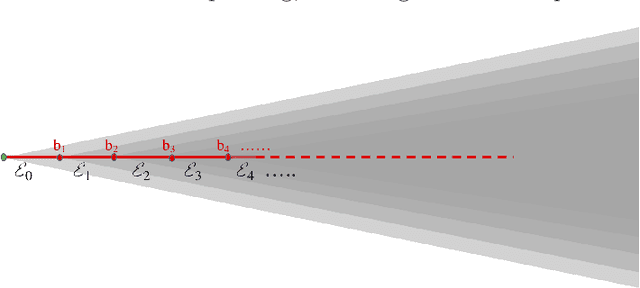Paolo Bottoni
Human-Artificial Interaction in the Age of Agentic AI: A System-Theoretical Approach
Feb 19, 2025



Abstract:This paper presents a novel perspective on human-computer interaction (HCI), framing it as a dynamic interplay between human and computational agents within a networked system. Going beyond traditional interface-based approaches, we emphasize the importance of coordination and communication among heterogeneous agents with different capabilities, roles, and goals. A key distinction is made between multi-agent systems (MAS) and Centaurian systems, which represent two different paradigms of human-AI collaboration. MAS maintain agent autonomy, with structured protocols enabling cooperation, while Centaurian systems deeply integrate human and AI capabilities, creating unified decision-making entities. To formalize these interactions, we introduce a framework for communication spaces, structured into surface, observation, and computation layers, ensuring seamless integration between MAS and Centaurian architectures, where colored Petri nets effectively represent structured Centaurian systems and high-level reconfigurable networks address the dynamic nature of MAS. Our research has practical applications in autonomous robotics, human-in-the-loop decision making, and AI-driven cognitive architectures, and provides a foundation for next-generation hybrid intelligence systems that balance structured coordination with emergent behavior.
A formal model for ledger management systems based on contracts and temporal logic
Sep 30, 2021

Abstract:A key component of blockchain technology is the ledger, viz., a database that, unlike standard databases, keeps in memory the complete history of past transactions as in a notarial archive for the benefit of any future test. In second-generation blockchains such as Ethereum the ledger is coupled with smart contracts, which enable the automation of transactions associated with agreements between the parties of a financial or commercial nature. The coupling of smart contracts and ledgers provides the technological background for very innovative application areas, such as Decentralized Autonomous Organizations (DAOs), Initial Coin Offerings (ICOs) and Decentralized Finance (DeFi), which propelled blockchains beyond cryptocurrencies that were the only focus of first generation blockchains such as the Bitcoin. However, the currently used implementation of smart contracts as arbitrary programming constructs has made them susceptible to dangerous bugs that can be exploited maliciously and has moved their semantics away from that of legal contracts. We propose here to recompose the split and recover the reliability of databases by formalizing a notion of contract modelled as a finite-state automaton with well-defined computational characteristics derived from an encoding in terms of allocations of resources to actors, as an alternative to the approach based on programming. To complete the work, we use temporal logic as the basis for an abstract query language that is effectively suited to the historical nature of the information kept in the ledger.
SWift -- A SignWriting improved fast transcriber
Nov 25, 2019
Abstract:We present SWift (SignWriting improved fast transcriber), an advanced editor for computer-aided writing and transcribing using SignWriting (SW). SW is devised to allow deaf people and linguists alike to exploit an easy-to-grasp written form of (any) sign language. Similarly, SWift has been developed for everyone who masters SW, and is not exclusively deaf-oriented. Using SWift, it is possible to compose and save any sign, using elementary components called glyphs. A guided procedure facilitates the composition process. SWift is aimed at helping to break down the "electronic" barriers that keep the deaf community away from Information and Communication Technology (ICT). The editor has been developed modularly and can be integrated everywhere the use of SW, as an alternative to written vocal language, may be advisable.
 Add to Chrome
Add to Chrome Add to Firefox
Add to Firefox Add to Edge
Add to Edge